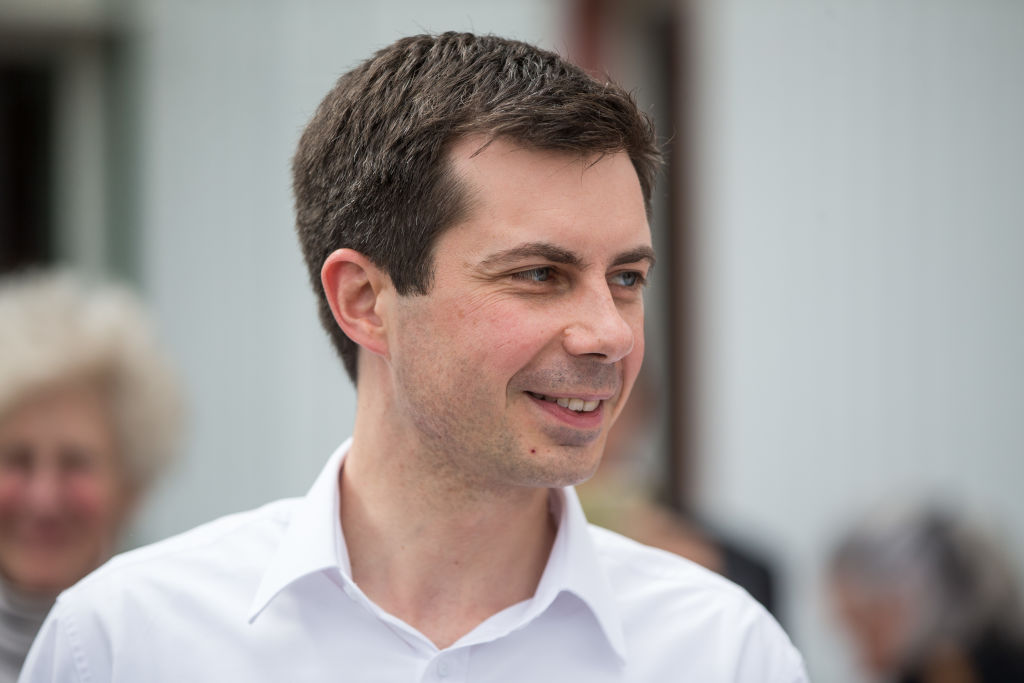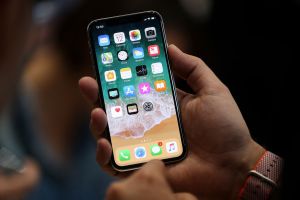If you spend a lot of time reading technology news and commentary on Twitter, you’ve probably heard about the ‘techlash’ – Silicon Valley’s alleged fall from favor in the public eye. From data breaches and Cambridge Analytica to the specter of job-stealing robots and an endless string of comparisons to Black Mirror, tech news has taken a turn for the dystopian. And public trust in these companies, especially Facebook, is legitimately dropping.
But Silicon Valley’s media machine sometimes has a tendency to get caught up in its own hype, or in this case, its anti-hype. How real, and how lasting, is the ‘techlash?’ We may have a new litmus test in South Bend mayor Pete Buttigieg’s campaign for the presidency.
The fresh-faced 37-year-old candidate is quickly being branded as Silicon Valley’s candidate of choice, as evidenced by a new feature in Recode by reporter Theodore Schleifer that digs deep into Buttigieg’s support from some of tech and venture capital’s heaviest hitters. And how voters react to this could prove enlightening with regard to their perception of the industry – as well as how much they care about what elected officials do about it.
As Schleifer explains, some of Buttigieg’s close ties to Silicon Valley’s upper echelon comes from relationships forged while he was an undergraduate at Harvard alongside the people who would ultimately become Facebook’s top executives and influential advisers. And he’s clearly used that network to his advantage – as well as the fact that he looks the part and speaks the language. Schleifer’s subtext is that Buttigieg is getting the same kind of reaction as he would if he were raising funds for a Y Combinator-backed startup in a hoodie rather than a presidential campaign in an oxford shirt and a tie.
‘If he came in and pitched a startup at Founders Fund,’ Schleifer quotes that firm’s partner Cyan Banister as saying ‘he would be in the A-player category of founders.’
Not everyone would consider this a compliment. Among the replies to Schleifer’s tweet publicizing his story:
‘no. no. nope. NoOooooooOope.’
‘Hard pass.’
‘Cozying up to [Facebook founder Mark Zuckerberg] loses my vote.’
‘We don’t need another corporate stooge. #HoldTheMayo’
I’m not entirely on board with that thinking. I work in the tech industry (including, in the interest of full disclosure, several years at Google), and while I’m frequently critical of it, I also think some of the anti-hype has left the realm of rationality and verged into scaremongering. In addition, I’m optimistic about the likelihood that Buttigieg actually cares to prioritize tech policy – but, of course, that’s still a guess, as one of the common criticisms of Buttigieg’s campaign is that he hasn’t made many policy stances clear.
In response to Schleifer’s reporting, some critics saw a connection there. Plenty of startups have been funded on the promise of a charismatic and well-connected founder and not much else. Anil Dash, a longtime tech exec and consistent critic of the industry’s shortfalls, commented on Twitter: ‘This context makes it seem as if Buttigieg’s lack of policy specifics is perhaps a tactic, rather than an omission.’
One thing is for sure: should Buttigieg’s rise continue, his tech ties are going to be fodder for attacks from his candidates to the left. Massachusetts senator Elizabeth Warren, for example, has come out hard against big tech companies’ sprawling reach. Other candidates have voiced support for her proposal to break some of them up. Minnesota senator Amy Klobuchar has proposed a ‘data tax’ to be paid by companies that profit from harvesting user data. (Perhaps an unlikely beneficiary of Buttigieg being painted as Big Tech’s candidate of choice will be New Jersey senator Cory Booker, who many pundits had assumed would be the candidate criticized for his Valley ties.)
Ultimately, this is a good thing. Tech policy deserves to be brought up on the primary debate stage, and it’s likely that Buttigieg’s presence there will mean that it will be. Moreover, it’ll be an indicator of where the ‘techlash’ really stands. If attacks on Buttigieg’s ties to companies like Facebook and top venture capitalists don’t work, it’s a sign that the malaise over Silicon Valley might not be quite so widespread outside the well-educated cities where companies like Facebook, Amazon, and Google operate their offices. And that’ll be telling.
(If Buttigieg is photographed drinking a can of venture-backed ‘murder water,’ though, all bets are off.)


















